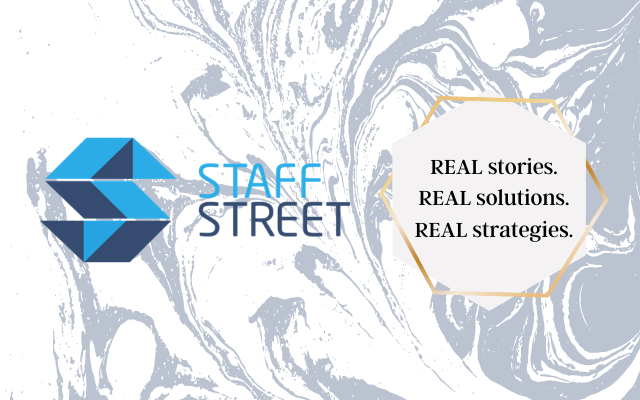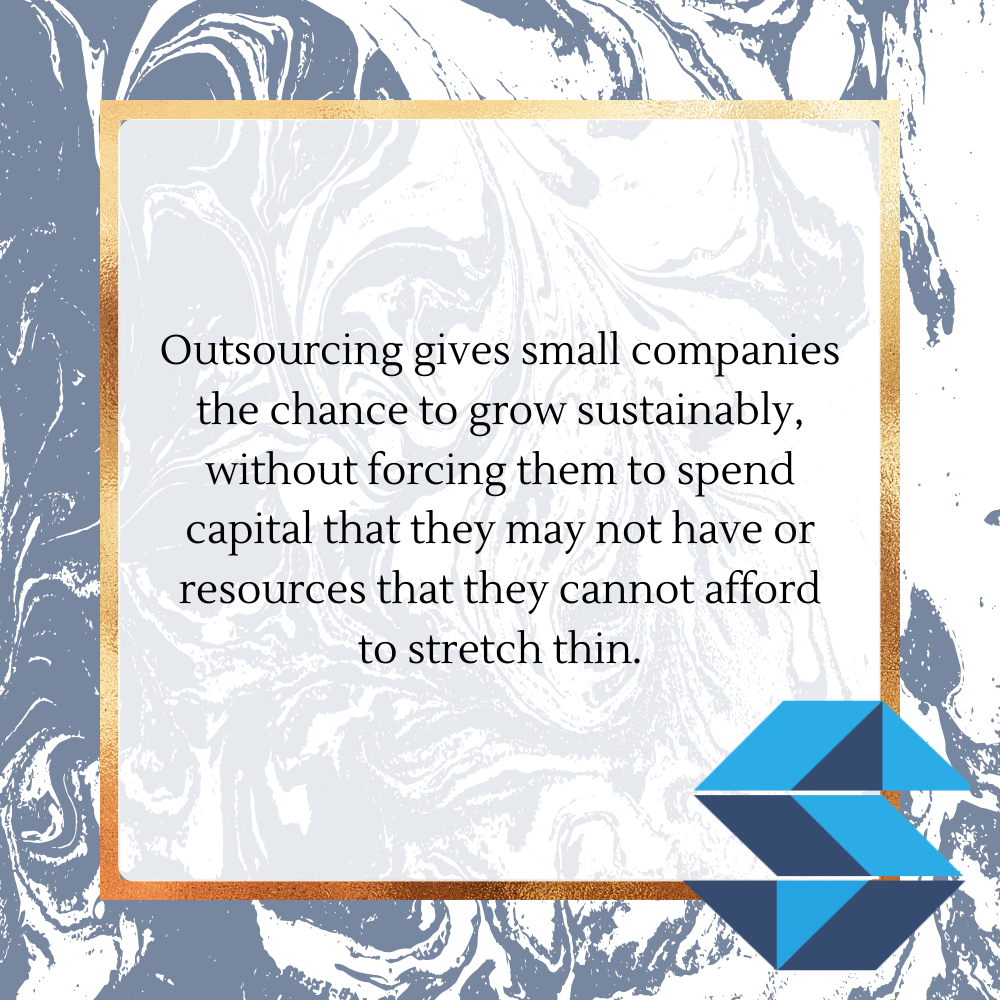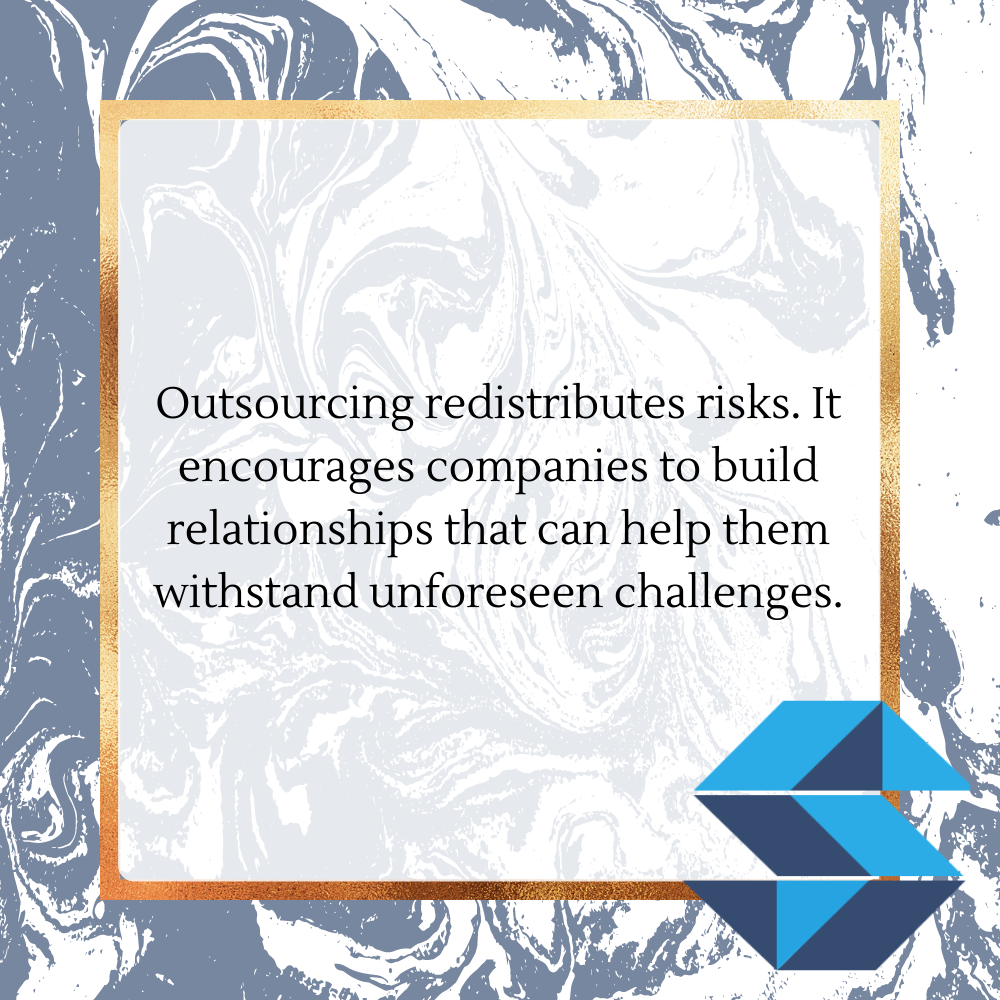What is outsourcing?
Simply put, outsourcing is hiring expertise outside of your organization to do a specific job. It’s easy to imagine why some companies would want to do that. For small businesses with few resources to spare, outsourcing is an effective strategy to improve their competitiveness. For businesses intending to expand, outsourcing is a cost-efficient method that enables them to redirect resources into strategic growth places. Choosing which job or task to outsource is unique to each company. It depends on their strengths, resources, and where they are on their entrepreneurial journey.
Over the years, outsourcing has received a reputation for moving jobs overseas. But it is reductive to imagine that outsourcing is just about moving opportunities away. Contrary to assumptions, outsourcing actually expands the horizon of opportunities. Whatever you might feel about it, outsourcing is an well-accepted way of improving business. .
Based on the experiences of the businesses featured on the Staff Street Mover’s Spotlight, we listed down real advantages of outsourcing. In this article, you will find
- the reasons why outsourcing is important
- the steps for choosing the right outsourcing company
- tips on how to streamline outsourced hires into your business process.
The importance of outsourcing – based on experience
Outsourcing provides strategic access to technology and expertise.
Such resources are important for smaller companies to stay competitive, but they may not always be within reach.
Small companies deal with the fact that they don’t always have the resources and the capital to sustain operations. Let alone grow demand and reach a wider audience. There are plenty of ways that entrepreneurs overcome these limitations.
They reach out to venture capitalists or angel investors and pitch their ideas and proof of concept. They may crowdsource funding from fans, friends and family, strengthening the network of interest and support around their business. Or they partner up with local industries to build rapport and work on projects to broaden their consumer base.
Outsourcing gives small companies a chance to grow sustainably. Without forcing them to spend capital that they may not have or resources that they cannot afford to stretch thin.
Outsourcing takes off some of the pressure that smaller companies experience trying to balance different aspects of their operation.
Whether you’re a small business operating out of your garage, or you’re a growing brand with three employees juggling 20 different hats, you’ll notice soon enough the difference that being able to focus makes. Business like ballet. Running it on your own terms is like spinning around on the same spot, trying to balance different things all at once. If you don’t focus on one thing, eventually you’re going to get dizzy and trip yourself. And that can be costly.
Outsourcing frees up your plate. It allows businesses to focus and improve specific tasks that they can do well, while delegating other essential jobs to someone else.
According to CEO Alex Bayer, Genius Juice’s threefold growth year-on-year is due partly to outsourcing many of their business processes. It allows them to focus on their forte: marketing, sales and merchandising.
“Overall, I think we’ve built a smart model combining different organizational strategies. We have outsourced some parts of our firm,” explains Bayer.
“Essentially, what capital we save from outsourcing, we drive into sales growth, marketing and supporting the product in our stores. That’s been our structure and strategy so far. It has really worked well to help us conserve capital and drive growth as a company.”
Outsourcing can also help businesses manage risks strategically.
Businesses determine how they manage risks based on what they’re willing to trade off to ensure stability. Outsourcing brings its own source of risks, including information security, diminished quality of work, and reduced creative control. But it can also assist in redistributing risks where it matters.
According to Panos Kouvelis, professor of operations and manufacturing management at the Olin School of Business at Washington University, outsourcing gives companies the opportunity to reduce the risks associated with fixed costs.
“You might end up paying slightly more to get a service or product. But you avoid the risk of getting stuck with high fixed costs when your product fails to meet your sales expectations. Outsourcing might allow you to operate with lower breakeven volumes,” explains Kouvelis.
Both Kirby and Bayer’s emerging food and beverage CPG brands benefited from outsourcing this way. They didn’t have to deal with the risks involved in owning their own manufacturing plants. In addition, they make it a point to work with people and firms they can build good relationships with.
Sasha Millstein, the CEO of Aunt Ethel’s Pot Pies, says that the foundation for any business starts with building strong relationships.
“While the product is essential, what’s more important is creating these relationships in order to build the business and really push the company forward,” Millstein says.
In summary, outsourcing improves the way businesses manage risks. It allows companies to build relationships that can help them withstand unforeseen challenges.
Outsourcing enables businesses to grow on their own terms.
As organizations build and rebuild themselves in the pandemic era, one of the things people are realizing about running a business is that proximity is no longer a prerequisite. Not for productivity nor organizational integrity. In fact, remote work, as it turns, increases productivity, diversity and inclusion, and enhances creativity and access to expertise.
Alli Owen, who co-founded keto-based sweets company Sweet Logic with her husband, Matt, has been financing her business out of the pocket for the last two years. The decision to stay financially independent is rare, admits Owen, but it has allowed her and Matt to build much of their business on their own terms.
“Because of our set-up, we’ve had to get creative and be strategic about where we invest our money, simply because we don’t have money to throw into the problem,” says Owen. “We produced the product in-house for two years before we went to a co-packer. I’m proud to say, we’ve done a lot of the nitty-gritty work to put us in this financial situation.”
As Sweet Logic began to expand, it was important to build on the right partnerships. Owen worked with different firms to address different organizational and functional needs: from design and packaging consultants to virtual administrative assistants. Sweet Logic has benefited from Owen’s strategic outsourcing.
But Alli says the greatest reward so far of outsour is being able to have time for herself.
“I can say we’ve finally gotten to the point that I feel very free in my lifestyle. We’re about to have a baby! I feel comfortable with the lifestyle that we’ve created that we’re ready to introduce a child into it, because it is flexible.
Steps for Finding the Right Outsourcing Strategy
The first real step to choosing the right growth strategy is to have a clear organizational map and a clear growth objective. A good grasp of organizational needs and strengths helps companies and businesses determine which functions can be done in-house and which can be outsourced. It also helps them find the right outsourcing company to work with based on competencies in strategies and staffing solutions.
ONE: Map out your talent pool.
Identify the competencies that you have in-house. Some companies fail to see the talent they already have, and pass over possible promotions or lateral changes in the organization. This can lead to employees feeling like there’s no future for any career development in the company. At the same time, companies that do hire from within can disrupt order. A good understanding of the individual strengths of your employees, what they can do, what they’re willing to do, and their own vision for their role in the company can help you determine your next steps.
So, ask yourself:
- What competencies do you have in-house?
- How do you plan to optimize them? What resources will be needed?
- What effects will mobilizing them have on your organizational structure?
- Which competencies do you need to find externally?
- What resources do you have to fill these needs?
- Will you recruit your own experts or outsource the job to third-party firms and consultants?
TWO: Determine the type of outsourcing strategy your company needs.
Before working with an outsourcing company, it helps to have an idea of what service you need them to provide. Do you need a staffing solution that is project-based, demands-based or long-term? Will you need an entire team to perform the job or a single specialist? What productivity indicators do you need to measure? It’s perfectly fine not to immediately have all the answers to these questions. Most outsourcing companies dedicate time to designing the right outsourcing strategy for you.
THREE: Find the best outsourcing company for you.
Outsourcing companies operate with different talent pools depending on whether they’re onshore, offshore or nearshore. Their talent pool helps shape the staffing solutions they offer, from who they hire to how they train and onboard them to integrate them into the company. In addition, the technologies and tool they use to augment their services also influence their effectiveness and reliability. Make sure to conduct consultations with your outsource company of choice to determine if they’re the right fit for you.
Staff Street CEOs David Czinn and Jeremy James say that the best way to evaluate the outsourcing company’s strategies is to look at the strategies they use for themselves.
“We source candidates for specific industry focused positions. We run background checks, verify resumes and run our candidates through rigorous grammar, speaking, typing and Excel tests,” said Czinn.
Besides talent, an added value of working with outsourcing companies is gaining access to the network of other firms and companies that they work closely with. Czinn said, “We pride ourselves in creating a community for entrepreneurs to learn from one and other and grow and scale efficiently and effectively.”





Pingback: How business can save money in 2021 - Staff Street
Pingback: One reason why you don't delegate work and five reasons why you should - Staff Street